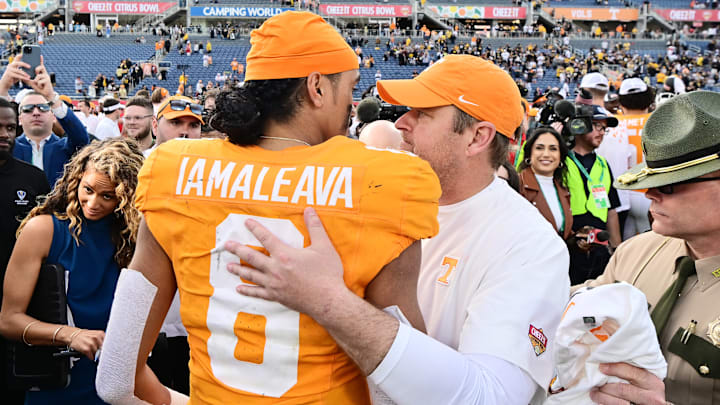There's absolutely zero question in my mind that Tennessee football used pay-for-play to entice five-star quarterback Nico Iamaleava. I don't even need to see evidence. It was evident from his recruitment that he was only going to go where the top dollar took him.
I'm not trying to single out Iamaleava. He's not alone. Nearly every five-star quarterback in the past few recruiting classes has gotten what's essentially become a signing bonus. Nebraska head coach Matt Rhule wasn't lying when he said it took $1 or $2 million to land an elite quarterback. The problem is that offering players that money up front to come to the school isn't NIL. it's pay-for-play and that's a major violation in the eyes of the NCAA.
So in terms of the news that Tennessee football is under investigation for how it handled NIL with Iamaleava, that shouldn't surprise anyone. In fact, I'd hazard a guess that most other SEC teams are doing the same thing, just as we know the Ohio State Buckeyes are -- just listen to Jeremiah Smith talking about making sure his NIL money hit before he signed with Ohio State, which again, isn't how it's supposed to work.
Here is what one NCAA source told Pete Thamel of ESPN on NIL:
"I'd say there's a real uptick in NIL cases, portal issues," a source familiar with the NCAA space told ESPN. "They are the two main areas of enforcement staff inquiry. And those go hand-in-hand a lot of times. The NIL money is being used as transfer bait."
Throughout the NIL era, college football teams have been operating under different sets of rules because the NCAA's rules are unclear and the organization has ignored much of the wrongdoing. It's been selective enforcement and the punishment of Michigan in the burger gate scandal is the worst example of it yet, especially when recruits and transfers are getting paid six or seven figures to leave one school and go to another.
It's far past time for the NCAA to act. But that doesn't mean it's going to stop the rampant pay-for-play that's gone on since its inception.
